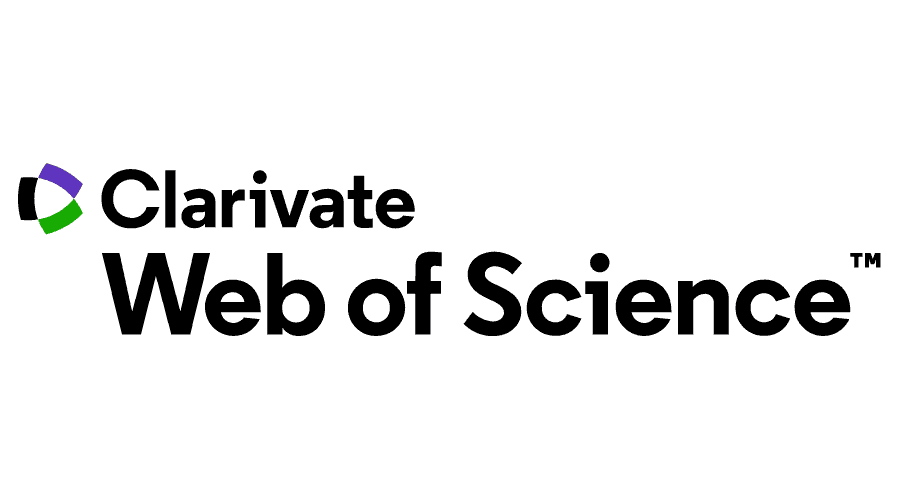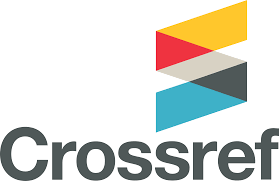Abstract
Research Aims: This research aims to investigate the influence of a digital mindset on Generation Z employees’ intention to stay.
Design/Methodology/Approach: This research was conducted using a quantitative approach involving 180 Generation Z employees in the creative industries. Data were analysed using Structural Equation Modelling with the SmartPLS tool.
Research Findings: The research results show that the digital mindset of Generation Z employees has a positive effect on employee intention to stay. By having a strong digital mindset, employees tend to feel more supported by the organisation when facing technological changes and a rapidly developing learning culture. Digital flexibility and support between colleagues are the main influencing factors. The practical implication is that organisations can increase employee retention and maximise the potential of a digital technology-savvy workforce in the dynamic landscape of the creative industries.
Theoretical Contribution/Originality: This research contributes by establishing a digital mindset as a new antecedent for employee intention to stay.
Managerial Implications in the South East Asian Context: Digital mindset has been shown to be effective in addressing crises in organisational management. Management that applies this concept is able to sustain the organisation and its competitiveness over time.
Research Limitations & Implications: To broaden the scope and gain more holistic insights, future research should consider involving other industries that may have connections or relevance to the aspects being researched. Additionally, comparing industries with varying levels of technological advancement could provide more comprehensive insights.
References
Allen, S. J. (2020). On the cutting edge of the chopping block? Fostering a digital mindset and tech literacy in business management education. Journal of Management Education, 44(3), 362–393.
Al-Suraihi, W. A., Samikon, S. A., Al-Suraihi, A. H. A., & Ibrahim, I. (2021). Employee turnover: Causes, importance and retention strategies. European Journal of Business and Management Research, 6(3), 1–10.
Andra, R. S., Utami, H. N., & Afrianty, T. W. (2022). Pengaruh perceived organizational support dan organizational culture terhadap work-life balance karyawan. Jurnal Administrasi Bisnis, 16(2), 174-182.
Angeles, Imelda T. (2024). Resilience, self-efficacy, openness to change, and innovativeness of MSME owners: A quantitative-qualitative integration before, during, and after the COVID-19 crisis, The South East Asian Journal of Management, 18(1), 1-27.
Antini, S. (2012). Mentoring atasan dalam meningkatkan affective commitment dan menurunkan intention to turnover pada karyawan (Studi pada SBU H PT. XYZ) [Thesis, Universitas Indonesia]. https://lib.ui.ac.id/detail?id=20309250&lokasi=lokal
Aryatna, I. P. G., Monica, M., & Saputra, N. (2023). Memotret pengaruh perceived organisational support dan digital communication terhadap organizational citizenship behavior. Swatantra, 10(1), 57-71.
Bińczycki, B., Łukasiński, W., & Dorocki, S. (2023). Determinants of motivation to work in terms of Industry 4.0—The Gen Z perspective. Sustainability, 15, 12069.
Castaneda, D. I., & Ramirez, C. A. (2021). Cultural values and knowledge sharing in the context of sustainable organizations. Sustainability, 13(14), 7819.
Cetindamar, D., Abedin, B., & Shirahada, K. (2021). The role of employees in digital transformation: A preliminary study on how employees’ digital literacy impacts use of digital technologies. IEEE Transactions on Engineering Management, 71, 7837-7848.
Fatia, F. N. (2019). Analisis kesiapan dan penerimaan siswa dalam penerapan ujian semester berbasis komputer (USBK) pada SMAN 90 Jakarta [Thesis, Universitas Islam Negri Syarif Hidayatullah Jakarta]. https://repository.uinjkt.ac.id/dspace/bitstream/123456789/47422/1/FANINDA%20NURUL%20FATIA-FST.pdf
Frank, A. G., Mendes, G. H., Ayala, N. F., & Ghezzi, A. (2019). Servitization and Industry 4.0 convergence in the digital transformation of product firms: A business model innovation perspective. Technological Forecasting and Social Change, 141, 341-351.
Garvin, D. A., Edmondson, A. C., & Gino, F. (2008). Is yours a learning organization?. Harvard Business Review, 86(3), 109.
Groele, B., Głąbska, D., Gutkowska, K., & Guzek, D. (2019). Mother-related determinants of children at-home fruit and vegetable dietary patterns in a polish national sample. Sustainability, 11(12), 3398.
Hair, J. F., Hult, G. T. M., Ringle, C. M., & Sarstedt, M. (2014). A primer on partial least squares structural equation modeling (PLS-SEM). Los Angeles: SAGE Publications.
Hair, J. F., Hult, G. T. M., Ringle, C. M., Sarstedt, M., Danks, N. P., & Ray, S. (2021). Partial least squares structural equation modeling (PLS-SEM) Using R: A workbook. New York City: Springer.
Hak, A. A. (2015). Kajian penerimaan teknologi digitalisasi oleh mahasiswa jurusan ilmu perpustakaan fakultas adab dan humaniora UIN Syarif Hidayatullah Jakarta. Institutional Repository UIN Syarif Hidayatullah, 19(5), 1–23.
Hemels, S., & Goto, K. (2017). Tax Incentives for the Creative Industries. New York City: Springer.
Lachowicz. M. J., Preacher, K. J., & Kelley, K. (2018). A novel measure of effect size for mediation analysis. Psychologigal Methods, 23(2), 244.
Neeley, T., & Leonardi, P. (2022). Developing a digital mindset. Harvard Business Review, 100(5-6), 50-55.
Ogbeibu, S., Jabbour, C. J. C., Gaskin. J., Senadjki, A., & Hughes. M. (2021). Leveraging STARA competencies and green creativity to boost green organizational innovative evidence: A praxis for sustainable development. Business Strategy and the Environment, 30(5), 2421-2440.
Park, T. Y., & Shaw, J. D. (2013). Turnover rates and organizational performance: A meta-analysis. Journal of Applied Psychology, 98(2), 268–309.
Praditya, I. M. D. I., & Putra, M. S. (2016). Pengaruh keadilan organisasional terhadap kepuasan kerja dan komitmen organisasional karyawan di wina holiday villa. E-Jurnal Manajemen Universitas Udayana, 5(6), 3532–3559.
Rhoades, L., & Eisenberger, R. (2002). Perceived organizational support: A review of the literature. Journal of Applied Psychology, 87(4), 698–714.
Robert Walters. (2023). Salary Survey Guide Indonesia 2023. Robert Walters. https://www.robertwalters.co.id/our-services/salary-survey.html
Roikhah, W., Purnaningrum, E., & Mu’asyaroh, H. A. (2023). Kajian terkait ketangkasan belajar tenaga kerja pada perusahaan manufacturing di era digital. Jurnal Inspirasi Bisnis Dan Manajemen, 7(1), 65–76.
Seemiller, C., & Grace, M. (2016). Generation z goes to college. New York: Jossey-Bass.
Septony. (2020). Pengaruh kepuasan kerja, keadilan organisasional dan pemberdayaan karyawan terhadap komitmen organisasional pada PT Avava Duta Indonesia [Doctoral dissertation, Universitas Putera Batam]. http://repository.upbatam.ac.id/510/1/cover%20s.d%20bab%20III.pdf
Sun, X., He, Z., & Qian, Y. (2024). Getting organizational adaptability in the context of digital transformation. Chinese Management Studies, 18(2), 550–574.
Wang, C. J. (2022). Exploring the mechanisms linking transformational leadership, perceived organizational support, creativity, and performance in hospitality: The mediating role of affective organizational commitment. Behavioral Sciences, 12(10), 406.
World Trade Organization. (2019). World trade statistical review 2019. World Trade Organization. www.wto.org/statistics
Yunianto, R. (2012). Hubungan budaya organisasi dengan kepuasan kerja dan turnover intention pada PT Asuransi XYZ [Unpublished Thesis]. Universitas Indonesia.
Recommended Citation
Luissa, Birgitta Annabel; Jimmy, So Yohanes; and Tjahjana, David
(2024)
"Investigation of The Antecedents of The Digital Mindset and Its Influence on Employee Intention to Stay in Generation Z: Empirical Study in The Indonesian Creative Industry,"
The South East Asian Journal of Management: Vol. 18:
No.
2, Article 2.
DOI: 10.21002/seam.v18i2.1576
Available at:
https://scholarhub.ui.ac.id/seam/vol18/iss2/2
Included in
Advertising and Promotion Management Commons, Organizational Behavior and Theory Commons











